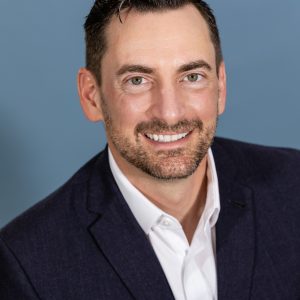Associate Professor of Political Science
Ellis joins New College as an Associate Professor of Political Science (untenured, credit toward tenure). As president of Ellis Analytics, Inc., Ellis has displayed exemplary acumen in public and private sector governance. He was a a resident senior fellow and professor at Joint Special Operations University in Tampa for six years. Before that, he held multiple roles with the Defense Intelligence Agency. Ellis earned his M.A. from the Elliot School of International Affairs at George Washington University and his Ph.D. in International Relations and Comparative Politics at the University of Florida.
WHAT ADVICE WOULD YOU GIVE TO A HIGH SCHOOL STUDENT?
Not only can you be a big fish in a small pond at NCF, you are guaranteed faculty who love to teach, who want to see you succeed, and who will invest in you to help you achieve your aspirations. You have a name at NCF, not a number, and there is no better feeling than earning your degree knowing that you produced tangible, honors-level work that will shape how you see the world for the rest of your life. NCF is not just about educating the person you are today, but helping you become the person you want to be tomorrow.
WHAT MAKES NEW COLLEGE OF
FLORIDA SO UNIQUE?
New College of Florida encourages independent thinking, provides the intellectual space for risk taking and experimentation, incentivizes relationships with faculty mentors, and cherishes the foundations of Western Civilization and the values underpinning America’s core institutions.
IF YOUR STUDENTS COULD READ ONE BOOK TO PREPARE FOR YOUR CLASS, WHAT WOULD IT BE?
Peter Berger and Thomas Luckmann, The Social Construction of Reality: A Treatise in the Sociology of Knowledge
1) “Introduction: Competing against the CCP through Statecraft,” in Competing for Advantage: The CCP, Statecraft, and Special Operations, David C. Ellis, ed. (Tampa: JSOU Press, 2024). David C. Ellis.
2) “Chapter 1: Integrated Campaigning and Illegal, Unreported, and Unregulated Fishing,” in Competing for Advantage: The CCP, Statecraft, and Special Operations, David C. Ellis, ed. (Tampa: JSOU Press, 2024). David C. Ellis and J. Samuel Barkin.
3) “Chapter 7: The CCP, Integrated Campaigning, and SOF,” in Competing for Advantage: The CCP, Statecraft, and Special Operations, David C. Ellis, ed. (Tampa: JSOU Press, 2024). David C. Ellis and Charles N. Black.
4) “Introduction,” in Big Data for Generals…and Everyone Else over 40, David C. Ellis and Mark Grzegorzewski, eds. (Tampa: JSOU Press, 2021), p.1-10.
5) Iranian Proxy Groups in Iraq, Syria, and Yemen: A Principal-Agent Comparative Analysis, (Tampa: JSOU Press, 2020), Diane Zorri, David C. Ellis, and Hugh Sadri.
6) Complexity, Organizational Blinders, and the SOCOM Design Way, (Tampa: JSOU Press, April 2018), David C. Ellis and Charles N. Black.
- “Human Smuggling and Terrorism: A Complex Adaptive Systems Approach for Special Operations Forces,” in Global Human Smuggling: Buying Freedom in a Retreating World, David J. Kyle and Luigi Achilles, eds. (Baltimore: Johns Hopkins University Press, 2023). David C. Ellis.
- “Organizing US: Regime Theory for Integrated Statecraft,” in The Great Power Competition Series, Volume 4:Lessons Learned in Afghanistan: America’s Longest War –, Adib Farhadi and Anthony Masys, eds. (Cham: Springer, 2023), 67-88. David C. Ellis and Charles N. Black.
- “Chapter 1: From Networks to Systems and the Limits of the Center of Gravity,” in The Network Illusion: How a Network-Centric Special Operations Culture Impedes Strategic Effect, Peter McCabe, ed. (Tampa: JSOU Press, 2022). David C. Ellis.
- “Chapter 2: The Islamist Social System: Intervening for Strategic Effect Using Evolutionary Governance Theory,” in The Network Illusion: How a Network-Centric Special Operations Culture Impedes Strategic Effect, Peter McCabe, ed. (Tampa: JSOU Press, 2022). David C. Ellis.
- “The Internet of Things (IoT) and the Art of Mapping a Population’s Thinking, Behavior, and Influencers,” in What Do Others Think and How Do We Know What They Are Thinking? Mariah Yager, ed. US Department of Page 3 Defense Strategic Multi-Layer Assessment (SMA) White Paper Series (March 2018), p.108-117, David C. Ellis, Mark Polyak, and Katie Ziemer.
- “U.S. Special Operations Command’s Future, by Design,” Joint Forces Quarterly 90 (July 2018), p.42-49, Charles N. Black, Richard Newton, David C. Ellis, and Mary Ann Nobles.
- “The State of the Art in Contemporary CWMD Thinking,” PRISM 7, no.3 (May 2018), p.69-83, Tracy Moss, Amy Frumin, and David C. Ellis.
- “Thinking Dangerously: Imagining USSOCOM in the Post-CT World,” PRISM 6, no.3 (December 2016), p.111-129, David C. Ellis, Charles N. Black, and Mary Ann Nobles.
- “’Left of Bang’ The Value of Sociocultural Analysis in Today’s Environment,” PRISM 3, no.4 (September 2012), p.13-21, LTG Michael T. Flynn, David C. Ellis, and James Sisco.
- “The Organizational Turn in International Organization Theory.” Journal of International Organizations Studies, 1, no.1 (2010), p.11-28, David C. Ellis.

